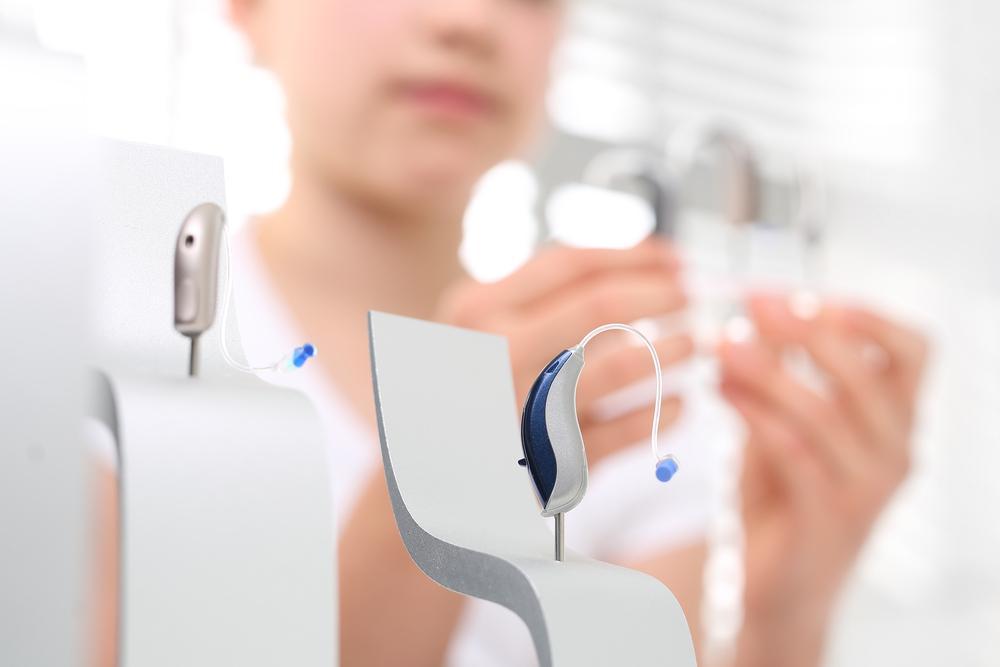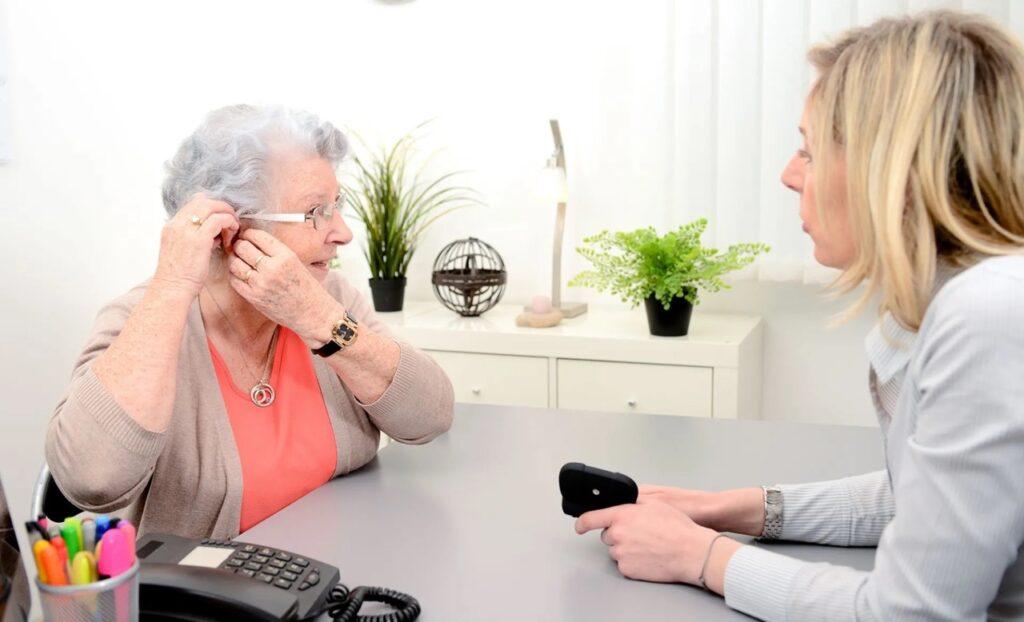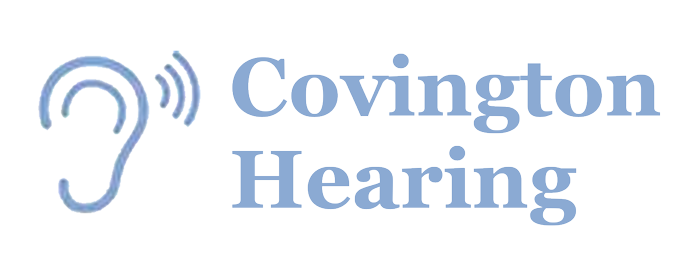Hearing Loss Correction & Aural Rehabilitation
- Appointment Recommended
- Locally Owned and Operated
- Hearing Screenings
- Hearing Aid Sales and Service
Better Hearing With State-of-the-Art Technology

Covington Hearing Associates uses the latest available technology to improve your hearing. These options include hearing aids, digital hearing aids, and assistive listening devices. Through these and other options, you’ll soon be on your way to better hearing and a noticeably improved quality of life. After discussing your hearing test results, the Audiologist will help select the hearing aid technology that best matches your lifestyle.
Whether you enjoy sitting at home watching television or attending your grandchild’s soccer game, we can help find the best hearing aid for you.

The Rehabilitation and Counseling You Need
What is Aural Rehabilitation?
Our aural rehabilitation program focuses on helping you live with your hearing loss, make the best use of your hearing aids, explore assistive listening devices that might help in difficult listening situations, use of listening strategies to improve speech understanding, and brain training programs that help improve your ability to understand conversation.

Important Parts of an Aural Rehabilitation Program
Your Hearing Loss
It is important to understand your hearing loss. When a comprehensive audiological evaluation is completed, we break your hearing system into different parts, from the outer ear to the brain. It is not enough to hear sound; our brain must process that sound correctly for speech understanding. It is important that you and your family understand all the components of your hearing loss from the hearing of sound to the processing of speech in quiet to the processing of speech in noise.
Your Hearing Aid
It is important that you understand what a hearing aid can do and what it cannot do. For instance, hearing aids can make you hear sounds that you cannot hear, but your hearing aids do not process that sound as speech, that happens in your brain.
Learning to Listen Again
Once fit with hearing aids, it is important that you complete an online brain training program such as clEAR. The objectives of an online brain training program are:
- Exercise your abilities to recognize the speech of your frequent communication partner (FCP) as well as everyday talkers.
- Exercise your brain and those important thinking skills that stave off cognitive decline and dementia.
- Increase your participation in social situations by being an active participant in conversations.
- Reduce your stress levels during routine family conversations.
- Enhance your abilities to recognize speech in noisy situations.
- Practice your listening skills in a non-judgmental environment.
- Complement your existing hearing technology.
Communications Strategies for Family Members
- Provide the subject before speaking.
- Ensure you have the attention of the person you are speaking to.
- Face the person and speak clearly.
- Speak at a slower speed giving the brain time to process and keep up.
- Take turns speaking and avoid multiple. conversations at once.
- Instead of repeating, try rephrasing. Some words are easier to process than others.
- Be patient, stay positive and supportive.
Assistive Listening Devices
Even with hearing aids, complicated listening environments can be challenging. However, there are accessory devices that are made to work with your hearing aids to better help you communicate in these challenging situations. With a TV streamer, you can enjoy watching TV with your family again. A TV streamer allows you to stream stereo sound from the TV directly to your hearing aids. A remote microphone allows you to stream sound from a small external microphone directly to your hearing aids allowing for noise reduction in restaurants and meetings. It no longer matters where you sit in church or how noisy the restaurant, clearer speech understanding is possible.

How Does Hearing Loss Change Your Brain?
Hearing loss not only affects your personality, cognition, and hearing abilities, but it can also cause stress, irritability as well as frustration. The brain can reorganize and adjust itself when your senses are altered. When you lose the ability to hear, the gray matter atrophy in the auditory areas of the brain is accelerated. Hence, people with untreated hearing loss have lesser gray matter density in the auditory cortex. They also have less brain activity when listening to complex sentences.
Since the auditory area of the brain no longer receives the nerve impulses from the sounds that the ear hears, your brain loses its high functioning ability. When the auditory area in the temporal lobe of your brain begins to degenerate, it creates a ripple effect in the area of the brain which is responsible for converting auditory information into an understandable spoken language (speech).
Hearing aids protect your ability to hear and preserve your perception, cognition, and how your brain processes sound, including understandable spoken language. To maintain a high-functioning brain, hearing should be tested at all ages. It is even more important to schedule a hearing test as we age. Call us at (470) 735-8887 today to schedule an appointment if it’s been more than a year since your last hearing test.
Additional Resources
www.asha.org/public/hearing/Self-Test-for-Hearing-Loss/
www.asha.org/public/hearing/Hearing-Loss-Organizations-and-Associations/
www.audiology.org/publications-resources/useful-links
www.cdc.gov/ncbddd/hearingloss/parentsguide/resources/index.html
www.deafwebsites.com/hearing-impaired-resources.html
www.healthline.com/health/hearing-or-speech-impairment-resources
Lifestyle Categories

Quiet
- Quiet home visits with no more than 2-3 adults
- Watches television in a quiet room
- Enjoys simple outdoor activities and talking with neighbors
- Small religious settings
- Quiet grocery shopping

Moderately Active
- Small group gatherings with no more than 5-7 adults
- Watches television in a larger room with other people
- Driving
- Larger weekly church gatherings
- Small, quiet restaurants

Active
- Enjoys social activities with larger groups
- Frequently eats in larger, noisy restaurants
- Larger group gatherings of more than 8 adults and/or children
- Conversations while driving or riding in the car
- Sporting events
Why Choose Covington Hearing Associates, LLC?
If you’re in need of aural rehabilitation, hearing testing, or hearing loss correction, like hearing aids in Covington, GA, or the surrounding areas, Covington Hearing Associates, LLC is here to help.
Our founder has over 20 years of experience working as an audiologist, and we are dedicated to using the most cutting-edge technology and procedures available to help our patients get the best results possible. We work with patients school-age and older, and we are always happy to help new patients.

Ready to get started?
If you’re interested in getting a hearing test, starting aural rehabilitation, or getting hearing aids in Covington, GA, or the surrounding areas, get in contact with our team today. If you have any questions about our services or would like to schedule an appointment, you can reach us by calling (470) 735-8887 or by using the convenient form on our site. We look forward to working with you!
